River Ver: Nearly half of chalk stream has run dry
- Published
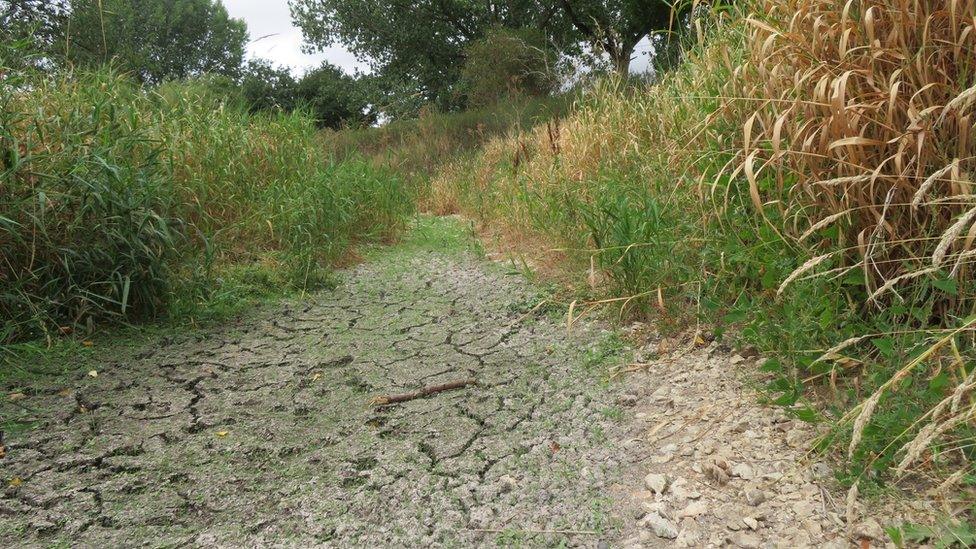
The River Ver is bone dry in the Redbourn area
A rare chalk stream has lost six miles (10km) of its total 17-miles (28km) length due to hot weather and increased demands for water.
The River Ver in Hertfordshire is a "shadow of its former self" with 10 million litres a day extracted from upstream, the Ver Valley Society said.
Affinity Water, who abstract it from the area, said it is committed to reducing the amount it takes.
It also said it should not need to introduce any water restrictions.
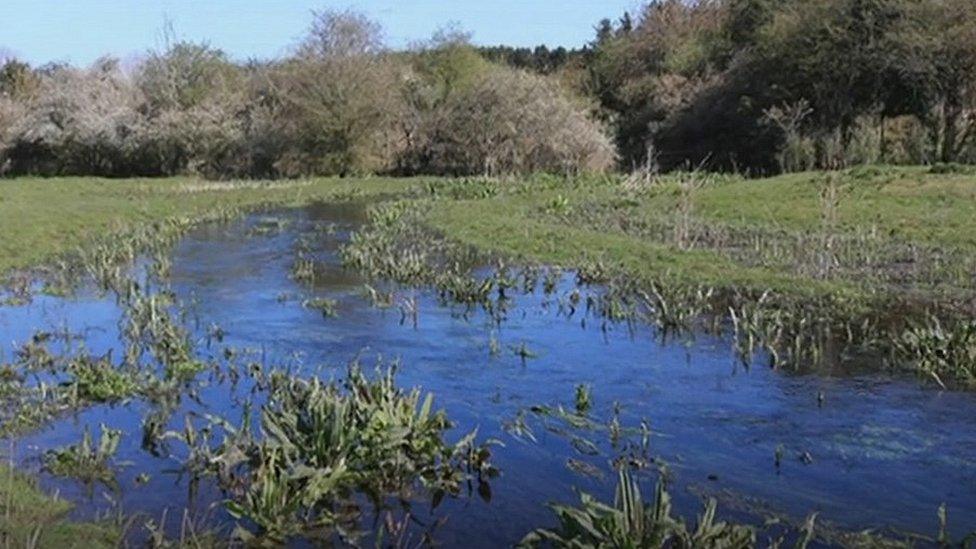
The river had "flowing water" up until last spring
The Ver Valley, formed on chalk, extends from Kensworth Lynch, north of Markyate, through Redbourn, St. Albans and Park Street to join the River Colne near Bricket Wood.
Nearly half of it is now bone dry as a combination of hot, dry weather and a greater demand for water that has lead to UK reservoir and river levels being lower than usual.
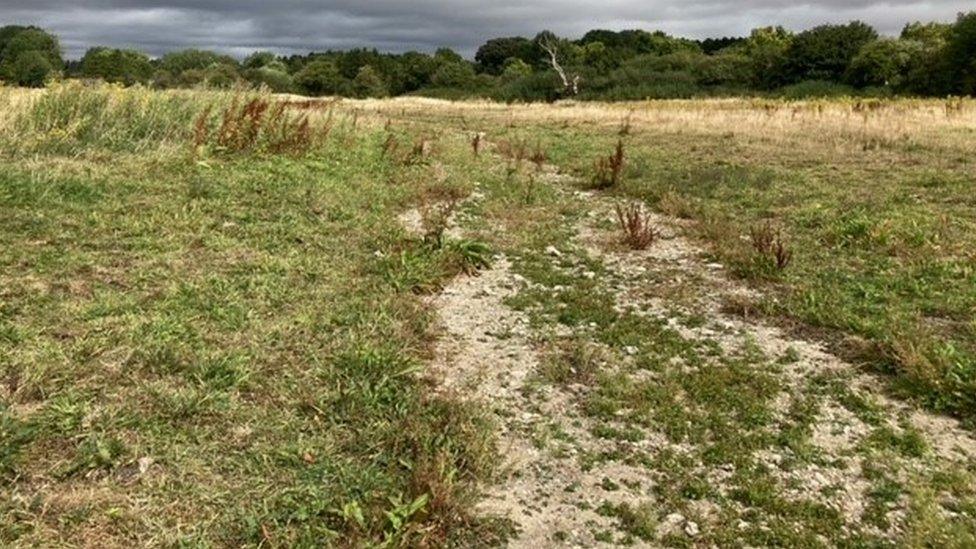
Now it is a "shadow of its former self" in the Redbourn area
John Pritchard, from the Ver Valley Society, said that while the dried up river in the Redbourn area is "upsetting enough", it also means less water is coming down the river, leaving the city of St Albans with "a warm, slow flowing, silty chalk stream".
"It's the result of a number of things," he said, "some climate change, but it doesn't help that we've got nearly 10 million litres a day of water being extracted from upstream.
"So when the river's in a bad state, it would be beneficial if that water was coming back to the environment."
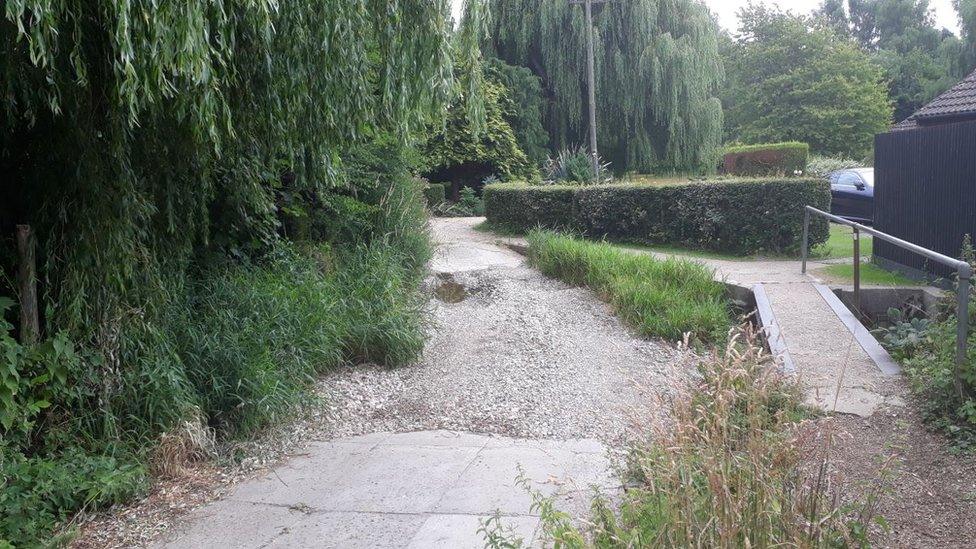
The River Ver is retreating down the valley including at the appropriately named Waterend Lane
He added that the last two years, up until this spring, had seen "lovely flowing water" but in 2019, after a drought, there was none.
"In the past it used to have water in it most of the time, in modern times it has water in it very seldom, [maybe] a couple of years at a time," he said.
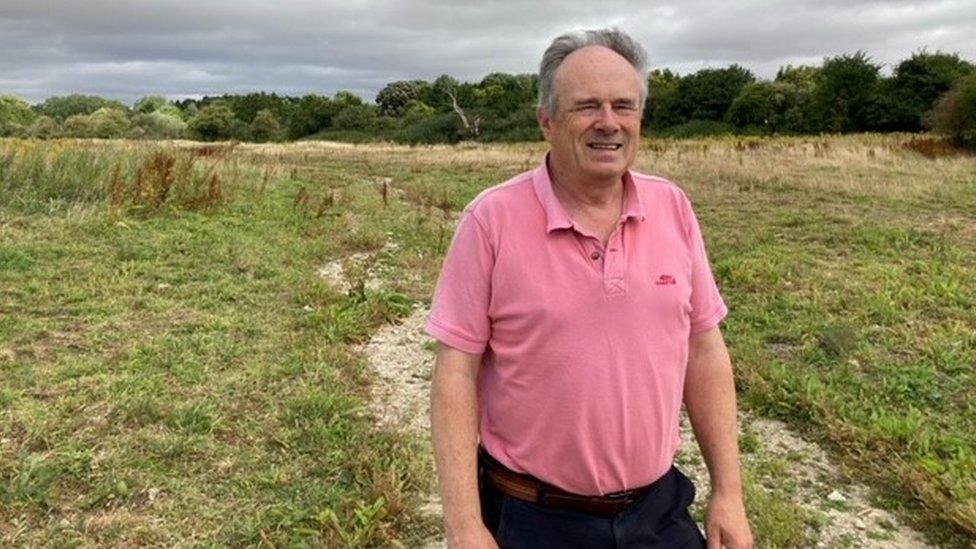
John Pritchard from the Ver Valley Society said it "doesn't help that nearly 10 million litres a day are being extracted upstream"
Affinity Water has told the BBC it is "committed to reducing abstraction" and its water levels are just below average.
"Rainfall over the last autumn and winter was less than the long-term average, which has resulted in groundwater levels in all our regions being below average for the time of year," a spokesman said.
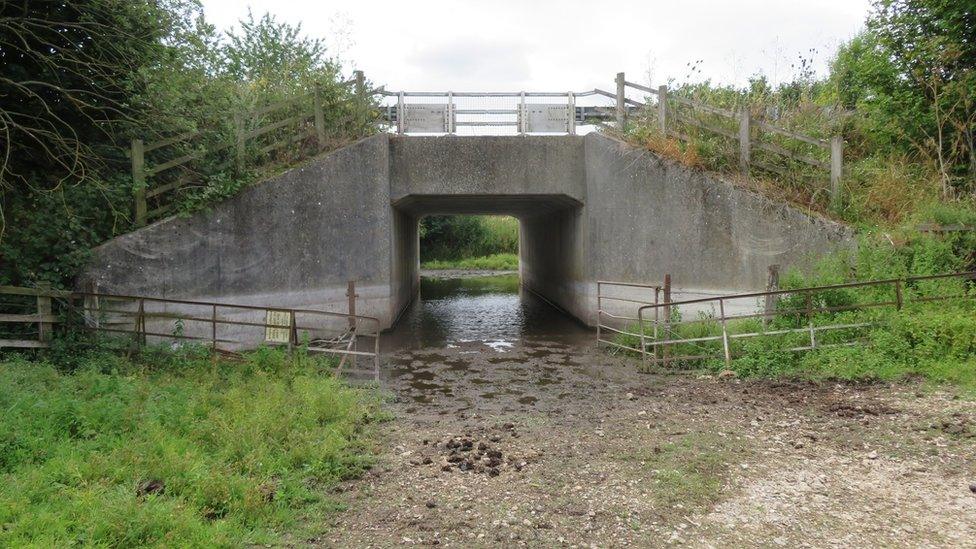
The River Ver is a puddle under the Redbourn bypass
"At current levels, we should not need to introduce restrictions this year, however we are dependent on rainfall over the upcoming autumn/winter period to refill groundwater aquifers for spring/summer 2023 and we are closely monitoring the situation."
It has asked customers to help by using less water to "leave more in our local environment, such as our region's globally rare chalk streams".

Find BBC News: East of England on Facebook, external, Instagram, external and Twitter, external. If you have a story suggestion email eastofenglandnews@bbc.co.uk, external